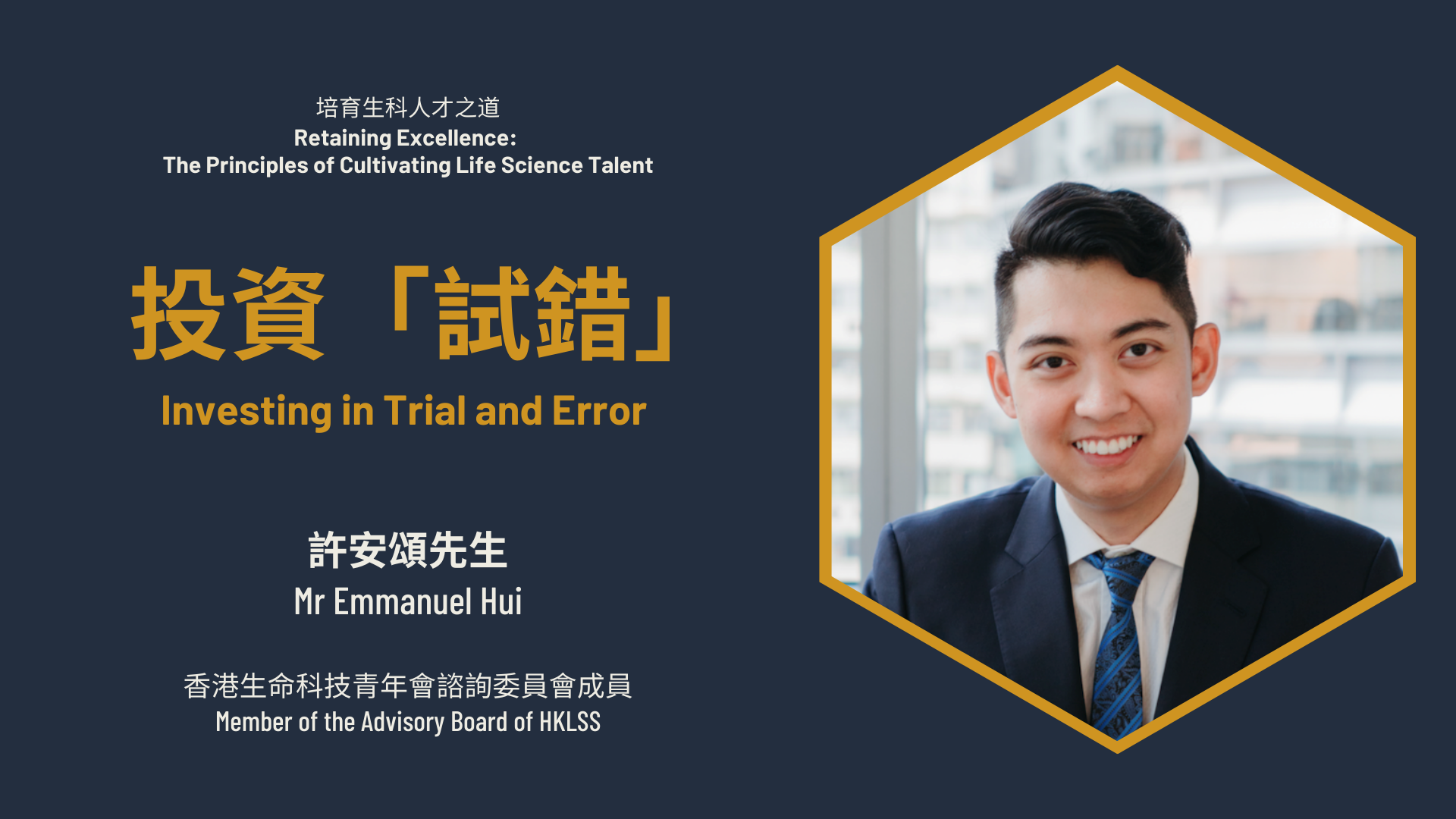From making observations to asking questions, designing experiments, and conducting testing, the road to scientific discoveries, whether big or small, takes significant time and resources. Therefore, it is crucial for laboratories to secure substantial and sustainable funding. This is exactly what Mr Emmanuel Hui, CEO of the Pebble Accelerator, an early-stage investment company backed by the CRO Tigermed and its USD fund Tiger Jade, can offer. “My work is to identify promising technologies in local universities that are worth investing in and turn them from zero to one.”
Describing Hong Kong as an “untapped gold mine”, the private investor explains, “The life sciences and biotech industry is still new and nascent, meaning that there are lots of opportunities for growth. My mission at my company and Hong Kong Life Sciences Society (HKLSS) is to uncover, polish, and marketize these gems.”
Having worked closely with his portfolio companies, he is well aware of their common challenge – recruitment. “I would love to hire from HKLSS’s talent pool. However, I do see a mismatch between supply and demand.” He further elaborates, “One of the companies looks for someone with Good Manufacturing Practices (GMP) expertise, but few in town have such a background. On the other hand, the city has a good supply of students interested in life sciences investment, but they are in low demand because the startup industry is still immature.”
To rectify the mismatch, nurturing talent is key. With well-structured programs all year round, HKLSS is committed to attracting, cultivating, and retaining talent in Hong Kong. Emmanuel, who serves on HKLSS Advisory Board, remarks, “I believe that as HKLSS continues to train talent over time, the supply and demand of human resources will gradually rise, ultimately reaching an equilibrium.”
Noticing the lack of hands-on experience among local talent, which could undermine their competitiveness, Emmanuel points out that starting one’s own company is a viable option. “You have to try it yourself. Either you fail or succeed. Only when you try it with your own hands will you learn something. And those skills are impossible to teach.”
To many, failure is a prerequisite for success, and this philosophy aptly applies to Emmanuel’s own success story. “I started a company with some professors when I was in university. At that time, I didn't know a thing, running into trouble everywhere. But eventually it became a listed company, thanks to the obstacles we faced along the way. It's all about learning through experiences,” he shares.
Interestingly, failure remains an integral part of his current work as a financier of start-ups. “I expect many of them will fail. But there will always be successful ones, who will become the foundation of Hong Kong‘s future.”
Aside from fostering a trial-and-error spirit, Emmanuel also emphasizes the significance of a strong R&D drive among aspiring scientists, suggesting, “We should reform the KPIs for junior academic and clinical staff to encourage greater involvement in research and R&D. Translational output should be taken into consideration for tenure and other job performance indicators.”
But work is not just about staying in the office or laboratory day and night. Having fun with collaborators is just as essential. Recalling the chill vibe at a HKLSS event, where he mingled with his peers and enjoyed the goji berry beer handcrafted by its interns, the young man says, “I’m grateful to HKLSS for inviting me to that occasion. I hope there are more to come! It'd be great if people could get together on weekends, engage in meaningful conversations, discuss market trends, and form communities where they could work, play, and conduct research together. We need a meeting point where people can share ideas and stimulate their creativity.”








